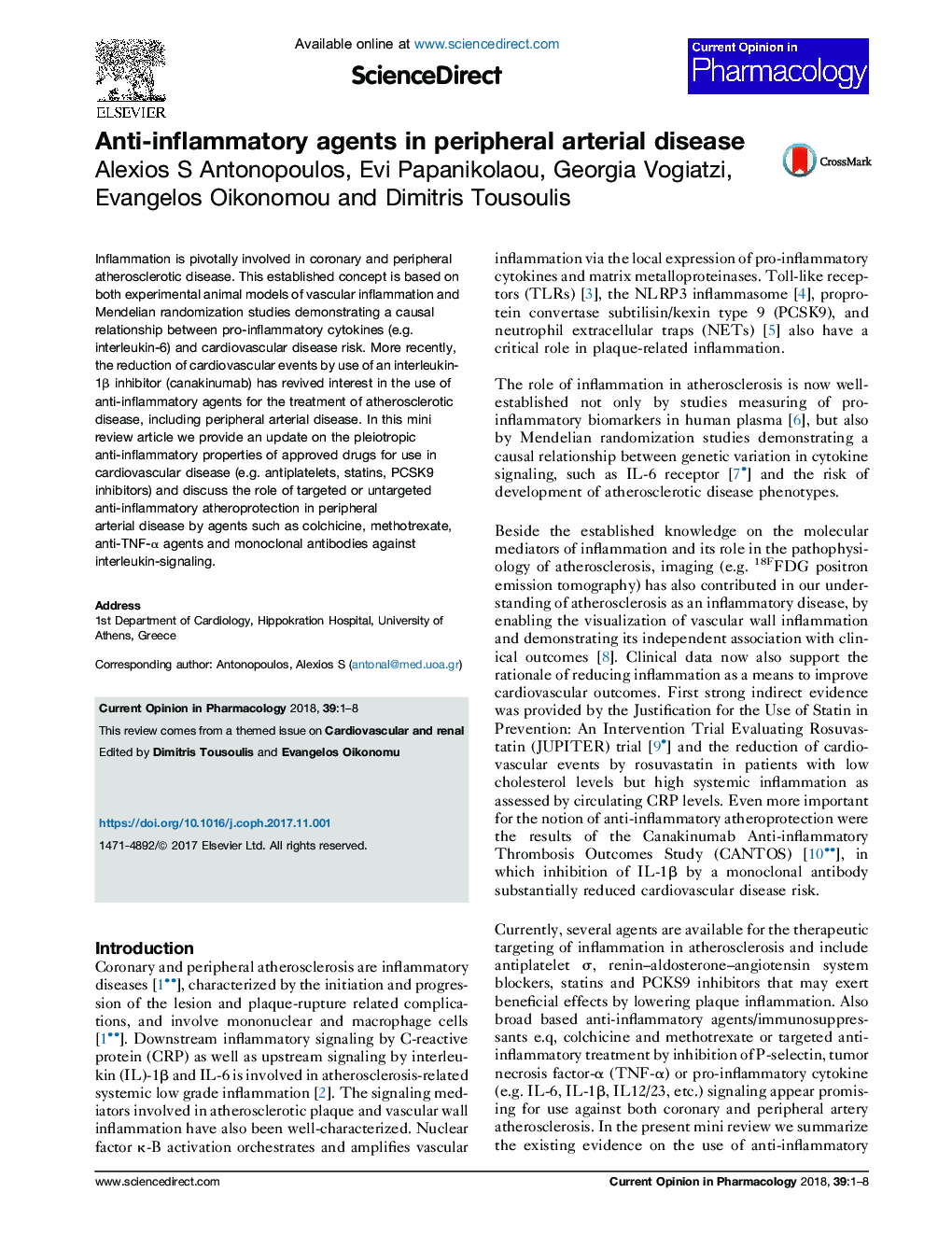| Article ID | Journal | Published Year | Pages | File Type |
|---|---|---|---|---|
| 8528641 | Current Opinion in Pharmacology | 2018 | 8 Pages |
Abstract
Inflammation is pivotally involved in coronary and peripheral atherosclerotic disease. This established concept is based on both experimental animal models of vascular inflammation and Mendelian randomization studies demonstrating a causal relationship between pro-inflammatory cytokines (e.g. interleukin-6) and cardiovascular disease risk. More recently, the reduction of cardiovascular events by use of an interleukin-1β inhibitor (canakinumab) has revived interest in the use of anti-inflammatory agents for the treatment of atherosclerotic disease, including peripheral arterial disease. In this mini review article we provide an update on the pleiotropic anti-inflammatory properties of approved drugs for use in cardiovascular disease (e.g. antiplatelets, statins, PCSK9 inhibitors) and discuss the role of targeted or untargeted anti-inflammatory atheroprotection in peripheral arterial disease by agents such as colchicine, methotrexate, anti-TNF-α agents and monoclonal antibodies against interleukin-signaling.
Related Topics
Life Sciences
Neuroscience
Cellular and Molecular Neuroscience
Authors
Alexios S Antonopoulos, Evi Papanikolaou, Georgia Vogiatzi, Evangelos Oikonomou, Dimitris Tousoulis,
